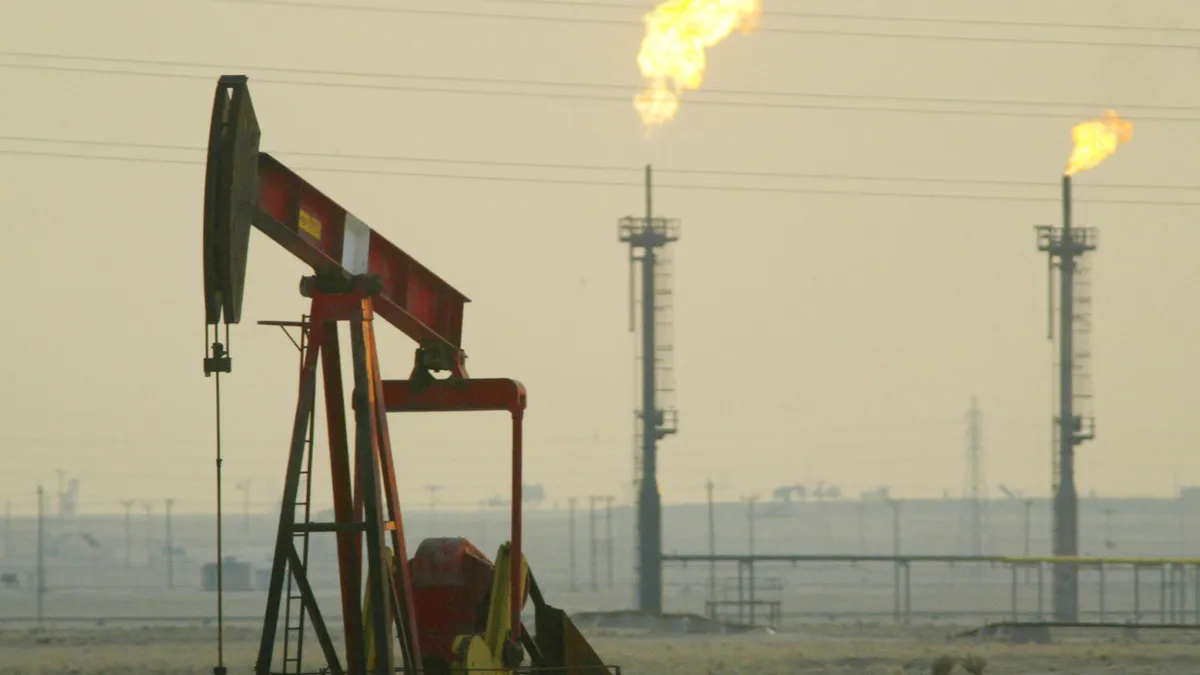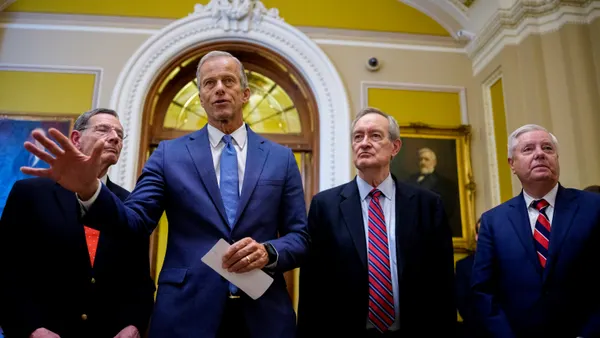Dive Brief:
- The Organization of the Petroleum Exporting Countries asked member states last week to steer clear of any COP28 proposal that would hinder the continued production and use of oil, gas and coal, urging them to “proactively reject any text or formula that targets energy i.e. fossil fuels rather than emissions,” according to a document first obtained and reported on by Reuters.
- Haitham Al Ghais, a Kuwaiti oil executive and OPEC’s secretary general, wrote the letter to all 13 OPEC countries — which include Saudi Arabia, Iran, and Kuwait — and 10 other major oil producing states that are part of an expanded group known as OPEC Plus, which includes Russia.
- OPEC’s Dec. 6 statement came a day after the United Nations’ climate body released the second version of the COP28 draft text, which showcased proposals that ranged from phasing out fossil fuels entirely to not discussing them at all.
Dive Insight:
OPEC’s head said plans advocating for the elimination of fossil fuels were part of “politically motivated campaigns” against major oil-producing states, which would put “people’s prosperity and future at risk,” according to letter excerpts published by Reuters.
“It seems that the undue and disproportionate pressure against fossil fuels may reach a tipping point with irreversible consequences, as the draft decision still contains options on fossil fuels phase out," Al Ghais wrote.
OPEC’s stance on fossil fuels is noteworthy as it represents the differing opinions countries participating in the annual UN climate summit have over curbing fossil fuels. While one option in the second COP28 draft text proposed an “orderly and just phase out of fossil fuels,” another was listed as “no text,” hinting at the intention of not having any limits or restrictions on fossil fuel consumption. The latter is a position that has been openly supported by Saudi Arabia and China.
The United Nations Framework Convention on Climate Change requires all parties to reach a consensus when finalizing an agreement at the climate summit. Pushback from any state could threaten the endorsement of such a climate deal. Countries must decide on a final version of the document by the summit’s conclusion on Dec. 12.
Al Ghais said that OPEC member and non-member states were “taking climate change seriously” and had “a proven record on climate actions,” though the multinational organization’s 13 states hold almost 80% of the world’s proven oil reserves. According to estimates from the World Economic Forum, OPEC produces about 40% of the world’s crude oil and exports from its members make up around 60% of the global petroleum trade.
Fossil fuels are by far the largest contributor to climate change, accounting for 75% of global greenhouse emissions and nearly 90% of all carbon dioxide emissions, per data from the UN.
This letter isn’t the first time Al Ghais has opposed phasing out of fossil fuels. In a statement dated Nov. 30, the OPEC head took issue with the “misguided and risky narrative” he alleged categorized oil and renewables industries as “competitors locked in a zero sum game.” The Kuwaiti executive said the construction of green infrastructure — such as wind turbines, solar panels and lithium-ion batteries used in electric vehicles — relied on petrochemicals and petroleum-derived products, which cannot be substituted yet.
“These facts demonstrate a clear reality: the oil industry and renewables do not operate in vacuums completely sealed off from each other. Renewables need petroleum products,” he added.
OPEC did not immediately respond to a request for a comment as of press time.












